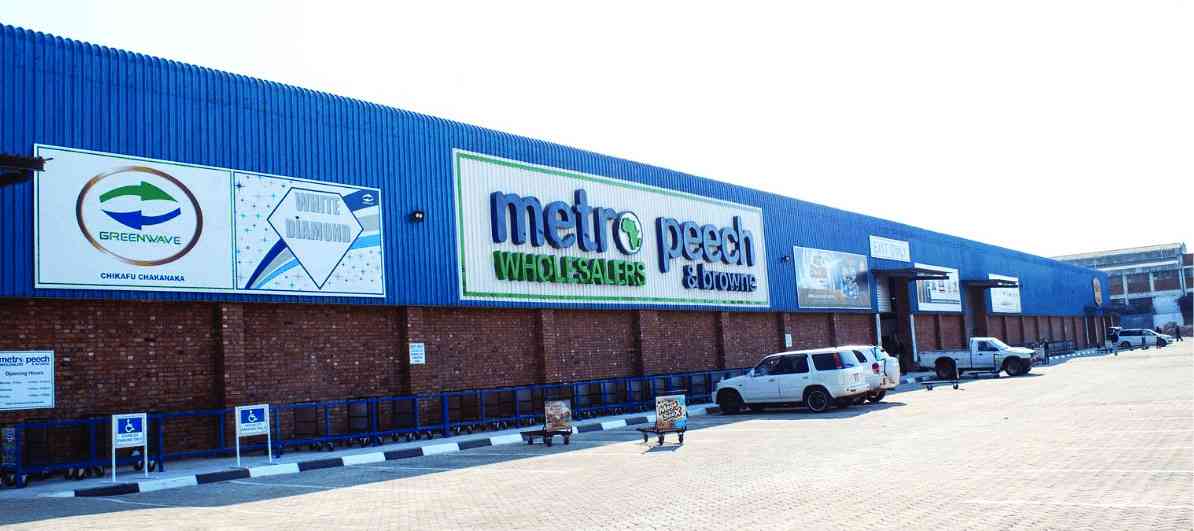
ZIMBABWE registered a negative trade balance of US$1,24 billion during the seven months to July, up 16% compared to the prior period, as the effects of government’s relaxation of basic commodity imports filtered through, data from the Zimbabwe National Statistics Agency (ZimStat) showed this week.
The trade deficit stood at US$1,07 billion during the same period last year.
This means Zimbabwe is spending more foreign currency to import goods and services than it is exporting.
The data indicates that Zimbabwe exported goods and services worth US$3,83 billion during the review period, compared to US$5,07 billion imports, resulting in a US$1,24 billion trade deficit. On Tuesday, leading economists said Zimbabwe’s overreliance on primary commodities will not be sustainable.
“The concern there is that, the global and Zimbabwe-South Africa trade deficit have widened, which I think is a concern,” Prosper Chitambara, chief economist at the Labour and Economic Research Institute of Zimbabwe, said.
“The exports have increased but not very significantly while we see imports have actually increased quite significantly overall.
“So I think it points to our huge appetite for imports. Well, I am not sure of the composition of those imports. If there are inputs or machinery or plant and equipment, I think that will be positive, which means we are importing things that can help us to enhance our productive capacity, which will positively affect our exports going forward.
“But the deficit is not a good thing. I think we need to close the deficit. We need to be producing more obviously and of course also exporting more. Our post-election policies must incentivise production and investments,” Chitambara said.
- Fiscal pressures could limit govt options
- Thousands flee economic mess
- Zim food inflation tops world: WB
- ‘1 500 women die giving birth’
Keep Reading
Imports outpaced exports during the review, rising by 6%.
Zimbabwe imports a wide-range of products, including machinery and mechanical appliances, raw materials, food products, fuels, minerals, textiles and clothing, footwear, electricity, chemicals, metals and intermediate products, among others. Exports, which increased by 3%, were dominated by commodities. For decades, Zimbabwe’s exports have been dominated by primary commodities, such as nickel ores and concentrates, nickel mattes, gold, tobacco, ferro-chromium, platinum and diamonds.
One of the challenges of relying on primary product exports is that the country might run out of its finite resources.
South Africa continued to be Zimbabwe's biggest trading partner, exporting goods worth US$1,93 billion to the country.
Trade between the two countries is in favour of South Africa.
Other significant trading partners during the review period included China, Mozambique, United Arab Emirates, Belgium, Zambia, Singapore and Mauritius.
In his 2023 national budget, Finance and Investment Promotion minister Mthuli Ncube predicted that the country’s external sector would remain relatively strong, with a surplus current account, albeit, at a much-lower level of US$85,2 million.
He, however, said the external sector’s performance may be dampened by softening global commodity prices and moderating global economic growth, against rising domestic imports.
“In 2023, merchandise exports are projected to marginally decrease by 2,4%, to US$7,2 billion on account of anticipated lower mineral export receipts, as the global economy slows down and the fall in commodity prices,” Ncube said.
Merchandise imports are projected to increase further to US$8,4 billion in 2023, in line with expected domestic economic growth, the finance minister said.
“Enhanced import substitution through local production of products such as wheat and soya beans is envisaged to dampen imports,” Ncube added.
Services exports are projected to increase from US$370,2 million in 2022 to US$425 million this year.
Similarly, services imports are predicted to rise from US$1,4 billion in 2022 to US$1,5 billion in 2023.
Farai Chigora, another economist, said an increase in imports was a leakage in an economy.
“It is taking money from the economy. Any increase in imports is not a good sign,” he said.
“But comparing now to the exports in the same period, they increased by 3%. If you are to see what we imported and what we exported, that is when you even go down and say is this contributing to the standards of living of the populace? Is it contributing to industrial development?
“Our exports to South Africa have decreased and imports have also decreased. At the end of the day, we have a trade deficit with South Africa of 11%. We don't have more exports going to South Africa as compared to imports.”
The ballooning of Zimbabwe’s import bill follows the government’s recent decision to allow the importation of basic commodities to improve their availability and halt price increases.
Researchers at Wealth Access Securities warned that lowering import tariffs would likely result in the flooding of cheap products from neighbouring countries, threatening the viability of local manufacturers.
“South African exporters are set to benefit more as most of our local products are sourced from Zimbabwe’s biggest business partner. Moreover, consumers are likely to choose imported products over domestic products,” they said in a report.
“We are of the view that retail companies both listed and unlisted like Pick n Pay, OK Zimbabwe, Choppies and Spar will have to deal with a decline in margins due to stiff competition from the informal sector.”
Retail chain OK Zimbabwe this week issued a statement bemoaning the rise of Zimbabwe’s informal operators, saying they were creating a whole new spat of “dangerously unhealthy competition”.
“Most formal retailers now are battling for survival,” OK Zimbabwe said.
“The rise of the unregulated informal operators who are mostly arbitraging has caused more headaches than good for the formal 'guys' like OK Zimbabwe, TM PnP, Gain Cash & Carry and so many more.”
It added: “In instances where some are paying taxes, some are not, where some are using the regulated bank exchange rate; some are not hence causing artificial or distorted price points in the stores.”
OK said the informal retailers were using the black-market rate and mark the same products downwards causing “forced death” on the formal retailer.
"The dangers are apparent as some have even started closing shops, some are under corporate rescue and many jobs are going to inevitably be lost."
For instance, Metro Peech & Browne Wholesalers recently went under corporate rescue administration, partly due to unfair competition from the informal sector.











